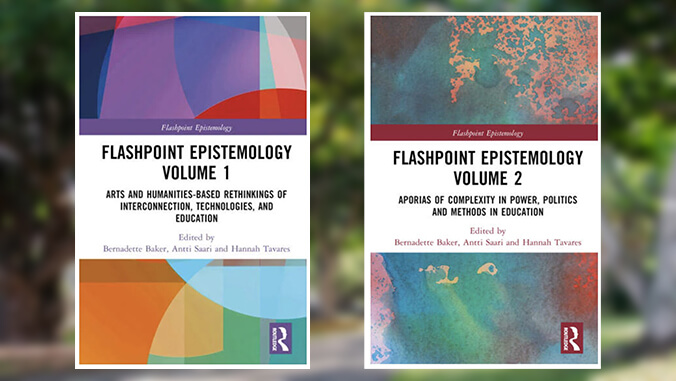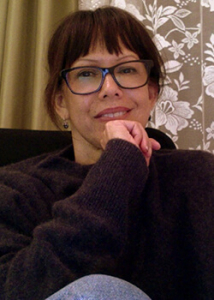
Flashpoints—tense moments generated within cross-philosophical clashes, connections, contacts and negotiation—are explored by a University of Hawaiʻi at Mānoa College of Education associate professor through two groundbreaking publications within the book series, Flashpoint Epistemology, from Routledge Education Books.
Hannah Tavares' two volumes consider flashpoints as urgent sites of study and for rethinking educational futures. The series is dedicated to analyzing flashpoints within educational settings that are mediated by or involve technological inventions. Tavares is a co-editor of Flashpoint Epistemology with three other scholars from China, Finland and the U.S.

Flashpoint Epistemology Volume 1: Arts and Humanities-based Rethinkings of Interconnection, Technologies, and Education examines contemporary collisions and reworkings of cultural-political issues in education through arts and humanities-based approaches.
Flashpoint Epistemology Volume 2: Aporias of Complexity in Power, Politics and Methods in Education brings creative sociopolitical research perspectives to flashpoints which emerge amid appeals to globalization, summarizing policy approaches and new technologies. The chapters challenge prevailing notions of distance and difference, comparative philosophy, worlding practices (removing boundaries between subject and environment) and contact zones (spaces where cultures clash).
Tavares earned a PhD in educational policy studies from the University of Wisconsin-Madison, an MEd in educational foundations and BA in political science with a certificate in ethnic studies at UH Mānoa. In 2017, she received the American Education Studies Association Critics' Choice Award for her book, Pedagogies of the Image: Photo-archives, Cultural Histories, and Postfoundational Inquiry.






